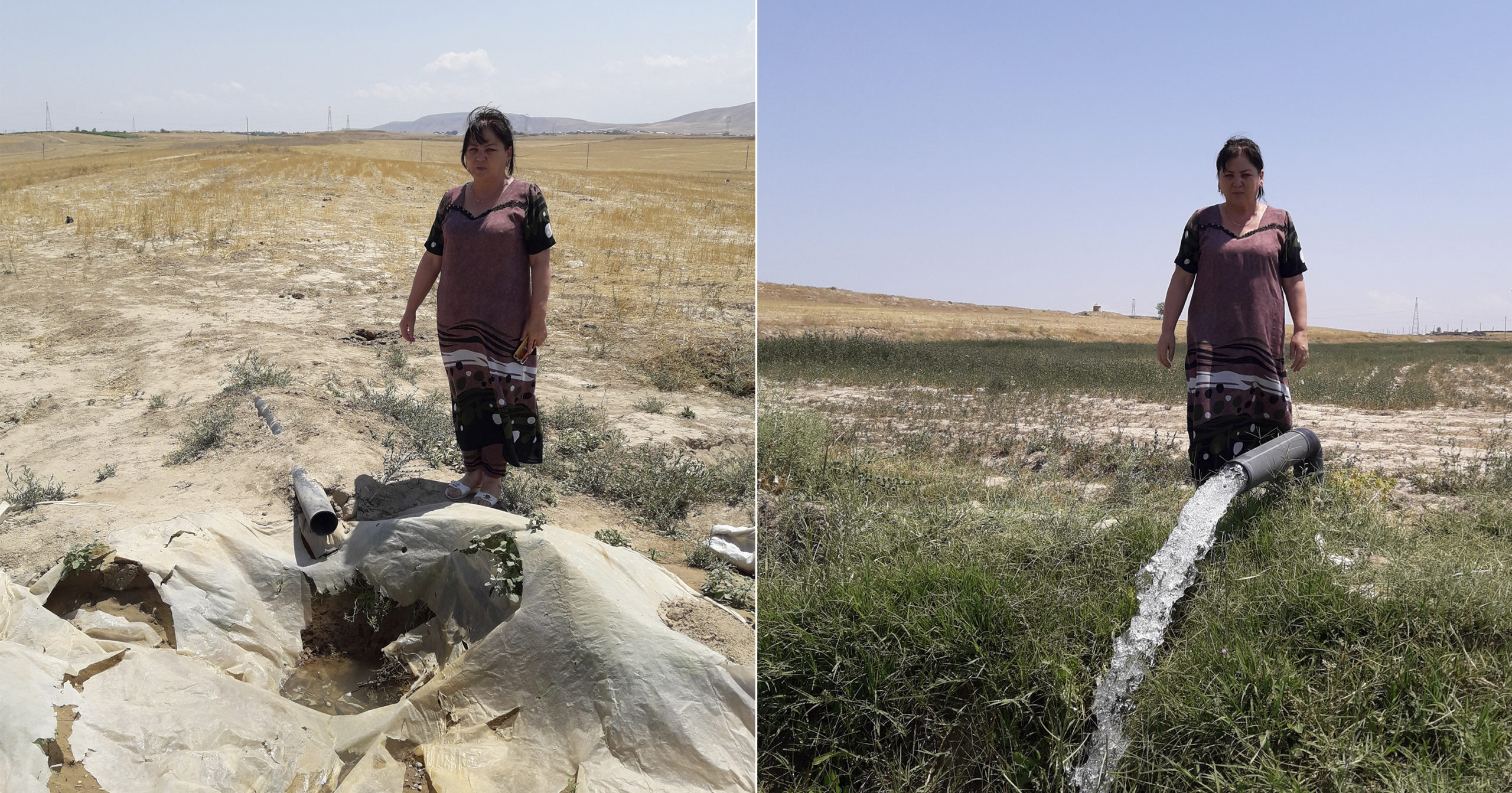








Improving water conservation and productivity with plastic pipes
A female entrepreneur from Tajikistan invested in a PVC pipeline in order to have regular access to water sources for irrigation for the land and to increase yields.
Ms. Shokirova Khosiyat works with her family and hires neighbours for seasonal work on 5 hectares of land. About 70% of workers are women who help with work related to sowing, growing and harvesting agricultural crops. Her dehkan farm “A. Qodirov” was established in 1996 and located in Devashtich district, where she grows onions, potatoes, watermelon, etc. Due to poor irrigation systems local farmers are not able to fully use the land potential, so Ms. Shokirova decided to invest in polyethylene pipes to eliminate the water shortage.
For this purpose, she has received a US$ 1,769 loan from one of European Bank for Reconstruction and Development (EBRD) partner banks for the purchase and installation of 125 mm diameter polyethylene pipes on 5.0 hectares of farm land.
The installation of a new water supply system has provided Ms. Shokirova’s farm with a regular and stable water supply for the irrigation of crops. The sales season for agricultural products begins in autumn where she usually sells directly from the field. This year she expects a 20% yield increase. Due to the pandemic, people’s incomes have decreased and agricultural products have not been purchased in high volumes.
The availability of the European Union (EU) investment incentive of 20% makes financing more accessible to farmers.
“I have learned about the benefits of this technology from the Bank’s marketing campaign and the GEFF grant support motivated me to invest in a PVC pipeline. Some of my neighbours are also interested in a similar investment. The only problem is related to natural disasters, which can impede sustainable agricultural development.”, said Ms. Shokirova Khosiyat.
GEFF Tajikistan is supported by the European Union, the Green Climate Fund and South Korea.
GEFF Tajikistan [Agricultural Value Chains] helps Tajik farmers and agribusinesses adopt technology solutions that can enhance competitiveness of the agricultural value chains. The program supports gender activities that aim to enhance women and men’s equal opportunity to access finance for green technologies.